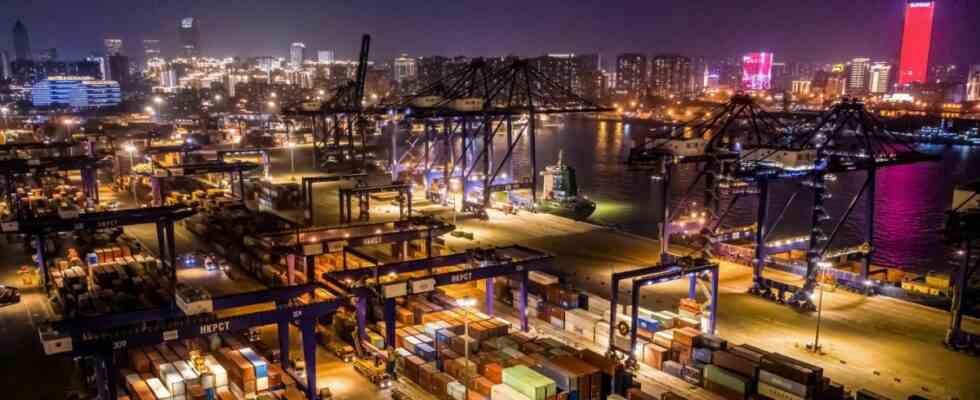The economic situation in Germany is worse than previously assumed. Gross domestic product fell by 0.4 percent in the winter quarter compared to the previous quarter, according to the Federal Statistical Office on Friday. The authority thus corrected its own estimate, which predicted the minus at 0.2 percent. Some experts also expect a decline in economic output in the spring quarter. A shrinking gross domestic product for two quarters in a row – that would fulfill the condition of a technical recession. The statisticians cite continued strong price increases and the ongoing energy crisis as the reason for the surprisingly strong decline. Consumers would also have spent less money because perks such as the fuel discount and the 9-euro ticket were no longer available compared to the summer quarter.
“It’s a bang. The energy price shock took its toll in the fourth quarter,” says Jörg Krämer, chief economist at Commerzbank. “Due to the absence of a gas shortage and the extensive state aid, however, I still do not expect a deep recession.”
In the construction sector there is a risk of not being able to maintain the number of employees
Investments in the equipment sector have also shrunk. According to the Federal Statistical Office, fewer machines, devices and vehicles were bought. The construction sector is also suffering. There, increased material costs and higher interest rates dampened the willingness to invest. The companies would still work off their backlog of orders, but orders in residential construction are in free fall, said Felix Pakleppa, general manager of the Central Association of the German Construction Industry. There is a considerable risk of not being able to maintain the number of employees. In 2022 alone, the number of employees in the main construction trades rose by a good 15,000 to around 927,000. “The construction industry has hired around 200,000 new employees over the past twelve years in order to be able to meet the enormous construction needs for apartments, schools and infrastructure,” said Pakleppa.
For the year 2023 as a whole, most experts are no longer as gloomy as they were in autumn, despite the Russian war against Ukraine, high inflation and ongoing supply bottlenecks. “The recession will continue in the first quarter before a difficult recovery will set in,” said Dekabank expert Andreas Scheuerle. The federal government “expects a noticeable revival in the further course of 2023”, according to the Ministry of Economic Affairs. It assumes that the gross domestic product will increase by 0.2 percent in 2023. That would be a fraction of the growth of 1.8 percent in the previous year.

